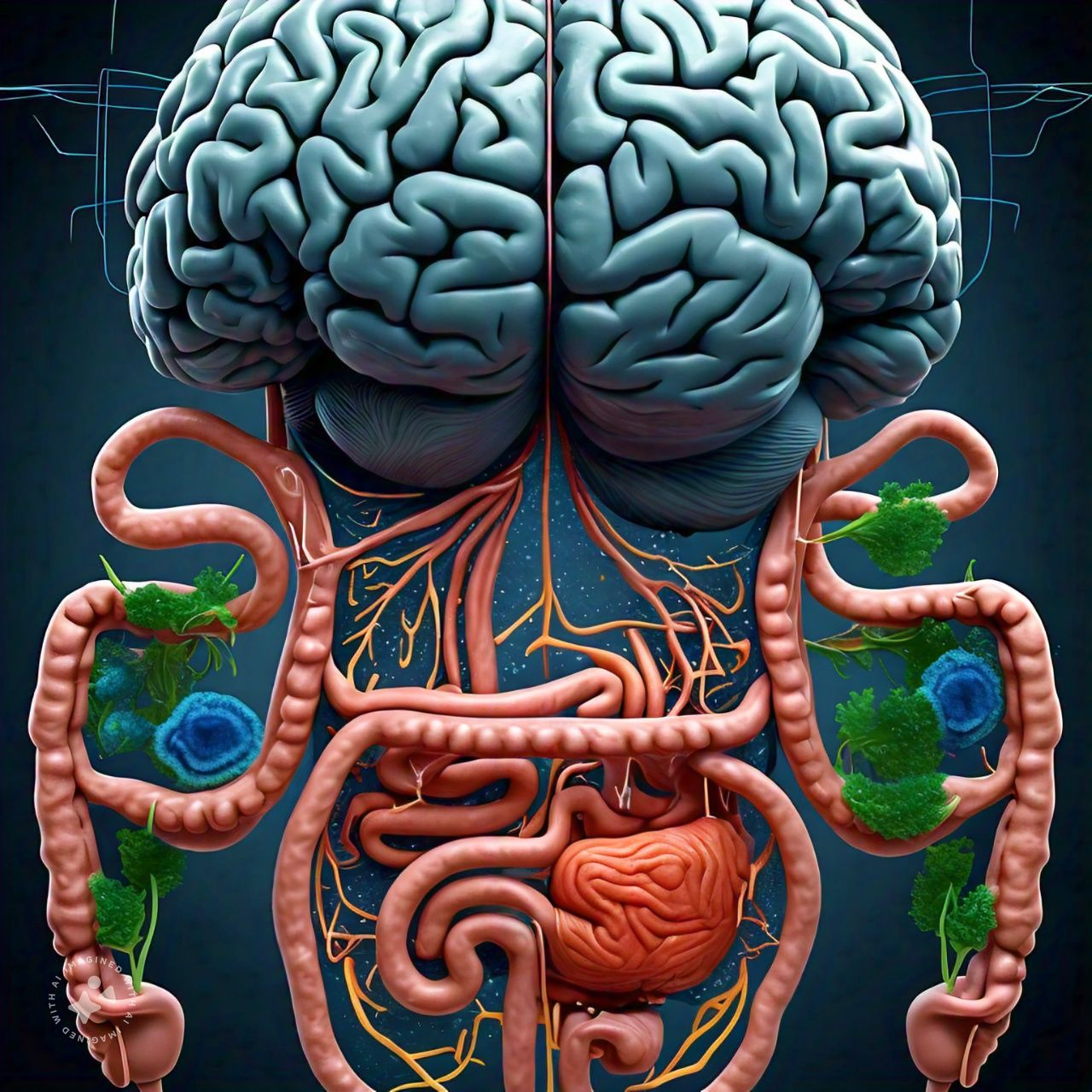Ever had butterflies in your stomach before hitting the stage for an important presentation? Maybe you experience irritability from eating a greasy takeout meal? Well, all of this happens because of the gut-brain connection.
For years we took the gut more or less as a digestive tract of food and with bacteria; it digests or absorbs in case of any problem. Recent studies have, however, uncovered these surprising truths: Your gut is home to trillions of tiny bacteria, and these little guys have a bigger say in your brain and mood.
It’s like thinking of your gut as a city. The tiny bacteria residing there, which represent your gut microbiome, would be thought of as the citizens of the city. There are hundreds of various types of bacteria, which constantly interact with themselves and the city—or rather, your digestive system—and this balance is responsible for your mental well-being among most other things.
The Two Way Street: How Your Gut Talks to Your Brain
So how does this gut ecosystem affect your mood? It’s all about a communication network. Take a look at the key players:
The Vagus Nerve: This is a superhighway that hooks up your gut directly with your brain. It sends and receives signals back and forth constantly, reporting what’s going on down there.
The Messengers of the Microbiome: Your gut bacteria do much more than just sit around and digest your food. It produces a wide range of chemicals—neurotransmitters like serotonin (the “happy” chemical) and GABA (a chill-out, mood-regulating chemical)—which can pass through your bloodstream or directly through your vagus nerve into your brain.
Your Gut’s Immune System: Your gut is also home to a large part of your immune system. Thus, when your gut microbiota are out of balance, it is able to provoke an inflammatory response that can start to impact the brain through multiple pathways.
The Gut—Brain Connection: From Butterflies to Blues
The microbiota gut–brain dance affects your mood and mental health. Here’s the quick version:
Stress and Anxiety: The disruption of bacterial balance in the gut can lead to increased stress and anxiety symptoms via inflammation and reduced neurotransmitter synthesis.
Depression: Healthy gut and reduced depression are strongly related. A change in gut flora is found among the people suffering from depression as compared to those not having depression.
Happiness and Well-being: A Healthy Gut Microbiome with Good Bacteria = More Serotonin and GABA = Happiness and Well-being
Nourish Your Mood: Feed a Happy Gut
The good news is that you have the gut microbiome well within your control. With just some lifestyle changes, you can feed a happy gut, and your mood might improve:
Feed Your Gut Bacteria: Your gut bacteria are alive too, and they need a certain diet to flourish. Give up the sweets and junk food in exchange for whole, unprocessed food; high fiber in your diet—this contains the prebiotic intake found in fruits, vegetables, and whole grains. Think about including probiotics in your meals; these are obtained from fermented foods like yogurt, kimchi, and kombucha.
Don’t mistreat fiber. Fiber is the superhero of your guts. It helps to promote the growth of good bacteria in the gut and regulates the digestive tract. Thus, be sure to eat enough fruits, vegetables, and whole grains in your diet to have at least one serving of fiber daily.
Stress Management: Chronic stress can wipe out your gut bacteria. Pioneeringly, it is important to manage stress utilizing practices that quiet the mind through activities like yoga, meditation, or deep breathing.
Think About Probiotic Supplements: While a healthy diet is very important, the use of probiotic supplements may be added to enhance beneficial bacteria intake. Consult with your health care provider for information if a probiotic supplement is right for you.
Do Not Skimp on Sleep: Sleep is no monkey business, pun intended; it is absolutely critical for your health and gut health, in particular. Strive to sleep for a healthy duration as in 7 to 8 hours each night.
GUT HEALTH AND THE BRAIN—WHAT THE FUTURE HOLDS
A study on the gut-brain connection is an area that has brought new hopes and debates. Researchers are looking at how they might use manipulations of the gut microbiota to treat problems with fear and depression.
Remember: A healthy gut microbiome promotes good mood but is no magic pill. The overall landscape of mental health is vast, influenced by things such as genetics, life experiences, and brain chemistry. If you’re struggling with persistent anxiety, depression, or other mental health issues, see a professional. But adding gut-healthy habits to your routine can be a great addition to traditional therapy and medication.
Beyond the Blues: Your Gut’s Far-Reaching Power
The link of the gut to the brain is certainly more far-reaching than mere mood and mental health. Here are some other ways your gut microbiome may be powering your health:
Functioning of Your Brain: The correlation between the gut and brain may have an impact on how your brain works. Hence, a healthy gut microbiome may be associated with memory, learning, and focus.
Skin Health: Your skin health concerns, like acne or eczema, could be related to dysbiosis, an unbalanced gut microbiome. Consequently, restoring that gut might improve skin health.
The Immune System: As previously mentioned, your gut houses about 70% of your immune system. When your gut microbiome is balanced, it will bode well for you, as it will defend against infection.
Your Journey to Gut Health: A Personalized Approach
A one-size-fits-all approach does not apply to gut health. Everyone is different, and what might work for one may not work for another. It is all about finding what works for you and your unique gut.
Listen to Your Body: Pay attention to how you feel after eating certain foods. If something consistently gives you digestive distress or makes you feel sluggish, consider limiting or eliminating it from your diet.
New foods: there’s a world out there of gut-friendly foods to taste, so try out new fruits, vegetables, and fermented edibles.
Food diary: You may have been tracking what you eat and how you feel after. This may enable you to find a pattern and relate back to your diet with symptoms in your gut.
So, your gut is not only a digestive system; it is also a place where the small things may live and be quite influential regarding your health and metabolic activity. When you feed these gut species, you may potentially refurbish your mood, boost your immune system, and gain more physical and mental energy. So, feed your gut the foods that it loves, and make sure to control stress levels and practice enough sleep. You’ll have a happy gut, and the benefits will flow to your mind and body.
Conclusion: Your Gut – The Key to a Healthier, Happier You
Your human body is an amazing machine, and this gut-brain connection is the proof. While the research emerges, the facts are clear: a healthy gut microbiome can help your mood, mental wellbeing, and all over health.
So keep it in mind, the next time you reach for that sweet morsel of indulgence or are under stress. Assure a happy gut by making small dietary changes, sleeping well, and keeping a tab on stress, reaping the benefits.
Embrace the power of your gut—for a healthier and happier you!













